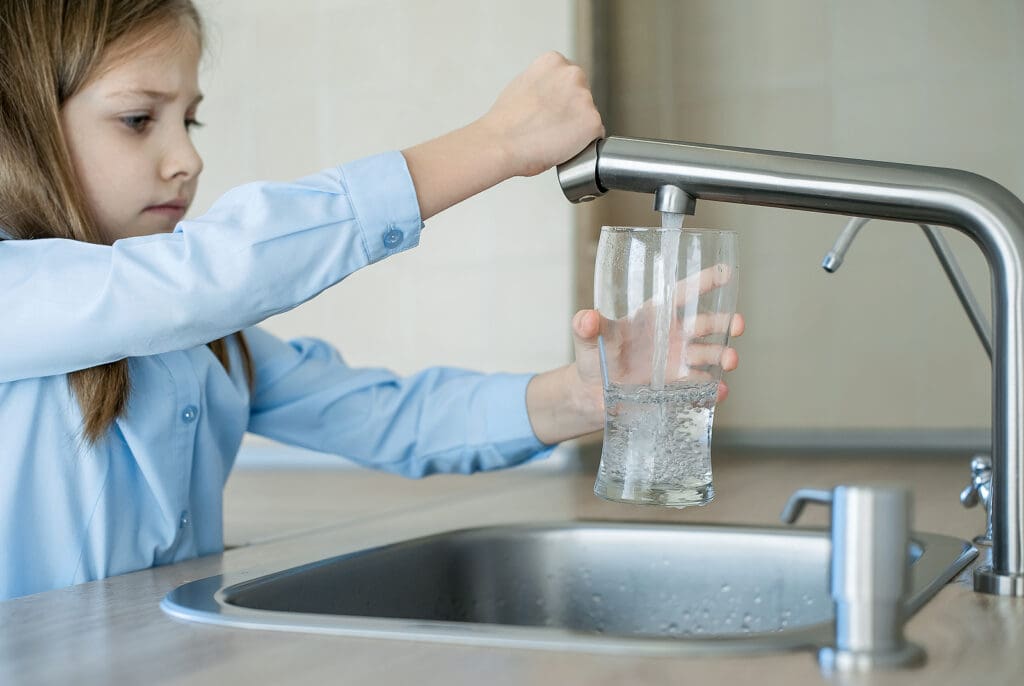Access to clean, safe water is fundamental to a healthy household. If your home gets water from a private well, you may face different challenges than homes with city water. Well water is unfiltered and untreated as it enters your home, often carrying natural and man-made contaminants. A good filtration system designed for your well water helps keep your family safe. It also ensures great-tasting water and protects your plumbing and appliances.
Why Do You Need a Well Water Filtration System?

Well water comes straight from underground sources and may appear clean at first glance. However, it often contains harmful contaminants, such as:
- Bacteria and Viruses: Microorganisms can find their way into your water supply, leading to potential health risks.
- Iron and Sulfur: These naturally occurring elements can leave stains on fixtures and give water an unpleasant odor.
- Pesticides and Herbicides: Agricultural runoff may seep into groundwater, introducing chemicals to your well.
- Sediment and Debris: Dirt, sand, and other particles can clog pipes and damage appliances over time.
Unlike city water, which undergoes extensive treatment, well water is your responsibility to filter and purify. A filtration system is not just a convenience—it’s a necessity. It ensures the water you use daily for drinking, cooking, and bathing is clean, safe, and free of impurities.
Different Types of Filtration Systems for Well Water
Each home’s well water is different. This means your filtration system should fit the specific problems found in your water. Professional water testing is a crucial first step to identifying contaminants and selecting the best solution for your home.
1. UV Disinfection Systems
If your well water tests positive for bacteria or viruses, a UV system is an excellent choice. This chemical-free technology uses ultraviolet light to neutralize harmful microorganisms, providing safe water for consumption and household use.
2. Whole-House Filtration Systems
A whole-house system filters all the water entering your home, ensuring clean water at every faucet. These systems are particularly effective for removing sediment, odors, and chemicals like chlorine. They also protect appliances like water heaters and dishwashers from scale buildup and wear.
3. Carbon Filters
Carbon filtration is ideal for removing chlorine, pesticides, and other organic chemicals that affect the taste and safety of your water. These filters are often used alongside other systems for comprehensive water treatment.
4. Reverse Osmosis Systems
For advanced filtration, reverse osmosis is one of the most effective methods available. By forcing water through a semipermeable membrane, these systems remove heavy metals, fluoride, and a wide range of contaminants. Reverse osmosis units are typically installed at specific points of use, such as kitchen faucets.
5. Sediment Filters
Sediment filters act as a pre-treatment step, capturing larger particles like sand, rust, and dirt before they reach your plumbing. They help improve the efficiency of other filtration systems and protect your pipes and appliances from damage.
Benefits of Filtering Your Well Water
Adding a filtration system to your well water setup has significant advantages beyond just providing safe drinking water:
- Health Protection: Removes harmful bacteria, viruses, and chemicals, safeguarding your family from illness.
- Improved Taste and Odor: Filters eliminate sulfur odors and metallic flavors, giving your water a refreshing quality.
- Plumbing Protection: Reduces sediment and mineral buildup in pipes, extending the lifespan of your plumbing and appliances.
- Cost Savings: Cleaner water means fewer repairs and replacements for fixtures and appliances affected by hard water or sediment.
Filtration systems improve water quality. They also help keep a healthy and efficient home. They address common well water problems.
What to Consider When Choosing a Well Water Filtration System
Selecting the right system requires careful thought and planning. Every home’s water needs are unique, so it’s important to evaluate these key factors:
- Water Test Results: A detailed water test is essential to identify specific contaminants in your well. This step ensures you choose a system that directly addresses your water quality concerns.
- Household Water Usage: Larger households may require higher-capacity systems to ensure adequate water flow and treatment.
- Maintenance Needs: Different systems have varying upkeep requirements. For instance, sediment filters may need regular replacement, while UV bulbs typically require annual maintenance.
- Budget and Long-Term Savings: While some systems involve higher upfront costs, they often save money over time by protecting your appliances and reducing the need for repairs.
Working with a professional installer can simplify this process and ensure you make an informed choice.
Maintaining Your Well Water Filtration System
To keep your system running efficiently, regular maintenance is key. This includes replacing filters, cleaning components, and monitoring water quality periodically. Maintenance schedules depend on the type of system you have:
- Sediment Filters: Replace every few months to prevent clogs and ensure proper flow.
- UV Systems: Change the bulb annually to maintain effectiveness against bacteria and viruses.
- Carbon Filters: Replace as recommended by the manufacturer, typically every 6-12 months.
- Reverse Osmosis Membranes: Flush and replace periodically to maintain filtration performance.
Following a maintenance routine keeps your water clean. It also helps your filtration system last longer. This makes it a smart investment for your home.
At Evergreen Plumbing, we specialize in helping homeowners achieve clean, safe water through tailored water filtration solutions. From water testing to installation and ongoing maintenance, we’re here to ensure your system performs at its best. Clean water starts with the right system—and the right partner to keep it running smoothly.